Society for Pediatric Pathology 2017 Presentation
September 24th, 2017 by Global Down Syndrome Foundation
Down syndrome in the 21st Century symposium attracts a roster of Global experts Global’s medical professionals, scientists, and self-advocates took center stage at this important symposium organized by the Society of Pediatric Pathology. They shared exciting updates and challenges facing patients with Down syndrome and their families.
Click to Download a Presentation on Pulmonary Development and Disease
MDC/Richmond American Homes Foundation provides generous research grant to the Global Down Syndrome Foundation
September 20th, 2017 by Global Down Syndrome Foundation
Kathy Green | kathygreen@globaldownsyndrome.org | (720) 280-9725
Anca Call | acall@globaldownsyndrome.org | (720) 320-3832
The research will focus on the relationship between Down syndrome and Huntington’s Disease
DENVER – The Global Down Syndrome Foundation (Global) announced that long-time Global supporter, MDC/Richmond American Homes Foundation, will fund a study exploring the connection between Down syndrome and Huntington’s disease.
Huntington’s disease is a fatal hereditary, genetic disorder that causes the progressive breakdown of nerve cells in the brain. The hope is that the $150,000 grant over three years will confirm the relationship, provide a pathway to therapeutics or a cure, and lead to larger grants funded by the federal government or international agencies.
The study is being led by renowned scientist Dr. Huntington Potter, director of the Alzheimer’s Disease Program at Global’s affiliate, the Linda Crnic Institute for Down Syndrome on the Anschutz Medical Campus. Preliminary research results show there is a mechanistic relationship whereby Down syndrome is defined by having three copies of chromosome 21 instead of two, and individuals with Huntington’s disease produce three copies of chromosome 21 in many of their cells.
“We are extremely grateful to MDC/Richmond American Homes Foundation and the Mizel family for their on-going support for people with Down syndrome,” said Michelle Sie Whitten, president and CEO of the Global Down Syndrome Foundation. “This additional research support will allow us further understand the connection between Down syndrome and Huntington’s disease, and hopefully help both people with Down syndrome and those with Huntington’s disease.”
“There is undoubtedly a connection between most major neurological disorders,” said Dr. Potter. “With Global’s support and this grant, we have the long-term opportunity to develop an early intervention and treatment to prevent the development of aneuploidy and consequent neural loss prior to dementia in both populations.”
About the Linda Crnic Institute for Down Syndrome and the Anna and John J. Sie Center for Down Syndrome
The Linda Crnic Institute for Down Syndrome is the first medical and research institute with the mission to provide the best clinical care to people with Down syndrome, and to eradicate the medical and cognitive ill effects associated with the condition. Established in 2008, the Crnic Institute is a partnership between the University of Colorado School of Medicine, the University of Colorado Boulder, and Children’s Hospital Colorado. Headquartered on the Anschutz Medical Campus in Aurora, the Crnic Institute includes the Anna and John J. Sie Center for Down Syndrome at Children’s Hospital Colorado.
Exploring the Roots of Lung Disease in Down Syndrome
July 2nd, 2017 by Global Down Syndrome Foundation
Could factors that prevent the formation of new blood vessels in the lungs account for the high prevalence of pulmonary disease in infants with down syndrome? The answer could have far-reaching implications that extend beyond lung health.
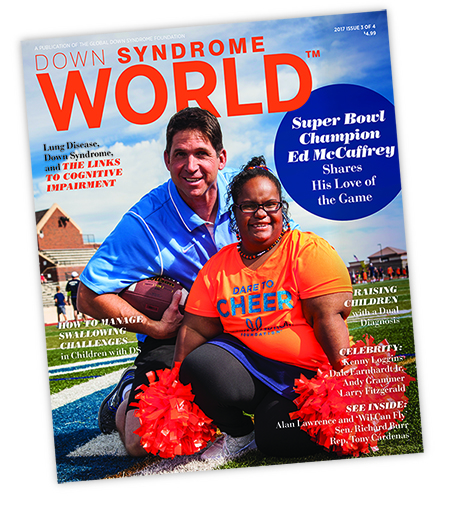 This article was published in the award-winning Down Syndrome World™ magazine. Become a member to read all the articles and get future issues delivered to your door!
This article was published in the award-winning Down Syndrome World™ magazine. Become a member to read all the articles and get future issues delivered to your door!
Conditions such as underdeveloped lungs, known as pulmonary hypoplasia, and high blood pressure in the arteries of the lungs, known as pulmonary arterial hypertension (PAH), occur in approximately 20 percent of children born with Down syndrome, according to data collected by Csaba Galambos, M.D., Ph.D., a pediatric pathologist in the Children’s Hospital Colorado Department of Pathology and Laboratory Medicine and Associate Professor of Pathology at the University of Colorado School of Medicine.
A group of researchers led by Dr. Galambos is exploring, for the first time, why individuals with Down syndrome are more susceptible to these conditions. His lab has hypothesized that central to the development of pulmonar y hypoplasia and PAH is the suppression of the process that prompts the growth of new blood vessels, a chain of events called angiogenesis. Their discoveries could lead not only to therapies for pulmonary disease in individuals with Down syndrome, but also to treatments that may improve lung development and function in all patients.
A DOUBLE-EDGED SWORD
Dr. Galambos’ fascination with angiogenesis began y ears ago, he read a paper by late angiogenesis r esearcher Judah Folkman, M.D., of Harvard University. Dr. Folkman’s research showed that solid tumors depend on newly formed blood vessels for their growth. Overexpression of chemical signals that block the process — known as angiogenesis inhibitors — may occur in people with Down syndrome. According to Dr. Galambos, that protective property may come with a downside in the form of pulmonary underdevelopment and dysfunction.
“Chromosome 21 has many genes that act as anti-vascular or antiangiogenic factors,” he said. “In people with Down syndrome, there is an excess of anti-angiogenic factors that could significantly block normal vessel development in all organs, including the lungs. Our goal is to explore a previously unrecognized role of the chromosome 21-specific anti-angiogenic factors that may lead to lung immaturity and increase the risk for severe PAH in infants and children with Down syndrome.”
MODELING ANGIOGENESIS
Using banked lung tissue samples, Dr. Galambos and colleagues created a number of different models to re-create angiogenesis and observe the effects of its impairment.
“We measured the messenger RNA expression levels of 84 angiogenesisrelated genes in Down syndrome fetal lung samples and typical controls, and we also looked at microscopic signs of impaired lung vascular growth,” Dr. Galambos said. “Not only did we discover that three potent chromosome 21-related anti-angiogenic factors are overexpressed significantly in the lung in utero, we also identified two other potent anti-angiogenic factors with significant overexpression that were unrelated to chromosome 21. Significantly, our analysis showed features of impaired vascular growth in these lungs.”
The next step for Dr. Galambos and his group was to develop cell-culture and animal models in which they could further test the effects of anti-angiogenesis.
“There are Down syndrome mouse models that carry three copies of portions of chromosome 21,” Dr. Galambos said. “We are excited that we are able to show, for the first time, that one of these models develops features characteristic of impaired lung development seen in the lungs of humans with Down syndrome.”
Dr. Galambos plans to use the mouse model to fur ther investigate the unique ways that Down syndrome affects angiogenesis, as well as the anti-angiogenic pathways that may play a role in abnormal pulmonary development and function. A 2017 C rnic Institute Grand Challenge Grant underwritten by the Global Down Syndrome Foundation will support his work. Dr. Galambos believes this research could produce findings — and point the w ay to novel therapies — that are applicable not only to patients with Down syndrome, but also to individuals in the gener al population with pulmonary hypoplasia and PAH.
THE NEXT FRONTIER?
Even as he explores the role of angiogenic impairment in lung disease, Dr. Galambos is pondering the possibility that it could also affect cognition in individuals with Down syndrome.
“It is well known that proper angiogenic signals are required for optimal nerve growth, supporting intellectual development,” he said.
“In Down syndrome and Alzheimer’s disease, nerve development and function are compromised. It has been shown that the thre edimensional vascular network of the brain is impaired in Alzheimer’s disease. It’s a realistic possibility that impaired angiogenesis not only causes underdeveloped lungs and PAH, but may also affect the development and function of neural networks of the brain in people with Down syndrome.”
Dr. Galambos believes a future in which clinicians use angiogenic therapies to treat lung disease and improve cognitive function in people with Down syndrome is possible — and he is doing his part to accelerate its arrival.
NEW INSIGHT INTO NEONATAL HYPOXEMIA
Infants born with lung disorders who do not respond to advanced respiratory therapies usually have low blood oxygen content, or hypoxemia, according to Csaba Galambos, M.D., Ph.D., a pediatric pathologist in the Children’s Hospital Colorado Department of Pathology and Laboratory Medicine and Associate Professor of Pathology at the University of Colorado School of Medicine.
Dr. Galambos and his colleagues recently identified a group of blood vessels in infants with hypoxemia, including those with Down syndrome, that permit nonoxygenated blood to enter the lungs, therefore contributing to potentially life threatening hypoxemia. Now, they want to learn how these vessels function.
“Our next step is to design animal models that can help identify the regulating mechanisms that open and close these vessels in lung disease, including pulmonary arterial hypertension (PAH),” Dr. Galambos said. “These data will allow us to test interventions that aim to close the vessels, and that will lead to better oxygenation, less severe lung disease, and improved survival of infants with lung disorders, including PAH.”
Csaba Galambos, M.D., Ph.D., a pediatric pathologist in the Children’s Hospital Colorado Department of Pathology and Laboratory Medicine and Associate Professor of Pathology at the University of Colorado School of Medicine, has received many notable grants to further his research into the links between lung disease and Down syndrome, including:
2014–2016 Jérôme Lejeune Foundation Grant, $39,000 “Role of Impaired Angiogenesis in the Pathogenesis of Severe Cardiopulmonary Disease in Children with Down Syndrome”
Role: Principal Investigator
2017 Crnic Grand Challenge Grant, $50,000 “Overexpression of Anti-angiogenic Genes Impairs Lung Development in Dp16 Mice”
Like this article? Join Global Down Syndrome Foundation’s Membership program today to receive 4 issues of the quarterly award-winning publication, plus access to 4 seasonal educational Webinar Series, and eligibility to apply for Global’s Employment and Educational Grants.
Register today at downsyndromeworld.org!
Protect NIH Funding in the Fiscal Year 2018 Budget: A Call to Action from the Down Syndrome Community
June 20th, 2017 by Global Down Syndrome Foundation


June 20, 2017, Denver | Global Down Syndrome Foundation (Global) is committed to protecting and advancing lifesaving and life-changing medical care and research that will significantly improve the health outcomes and quality of life for people with Down syndrome.
To this end, we are asking our families, friends and supporters to contact your Representatives today and urge Congress to work with our President to restore or increase federal funding for the National Institutes of Health (NIH) in fiscal year 2018. We are thrilled to have many of our national and international colleagues join Global in this ask: the National Down Syndrome Congress; LuMind Research Down Syndrome Foundation; Down Syndrome Affiliates In Action; International Down Syndrome Coalition; and the International Mosaic Down Syndrome Association.
Our Down syndrome community is made up of people from every background and political party. And our community deeply appreciates the leadership of our Republican and Democratic friends and allies in Congress in their effort to advocate for increased federal funding for the NIH, which conducts important research on Down syndrome and many other diseases and conditions that affect people with Down syndrome. Together, we want to make sure that the NIH continues to have sufficient funding to carry out its work, including Down syndrome research that is just beginning to regain momentum after two decades of flat funding.
Thanks to the dismantling of inhumane institutions where most people with Down syndrome were placed and increased access to medical care and local public schools, people with Down syndrome are living longer than ever: life expectancy has more than doubled from 25 years in 1983 to almost 60 years today. While this is encouraging, it also presents new challenges to ensure that people with Down syndrome receive the appropriate medical care they deserve throughout their lives. While people with Down syndrome are protected from certain solid tumor cancers, heart attacks and strokes, they are at higher risk for other diseases such as Alzheimer’s disease, certain blood cancers, and immune disorders. About 30% of people with Down syndrome also experience mental illnesses such as depression, obsessive-compulsive disorder, and conduct disorder, a rate which is notably higher than the general population.
Clearly, additional federal research is needed to advance our understanding of why people with Down syndrome are predisposed to certain ailments and protected from others. This will help us to understand and apply the best medical care for people with Down syndrome and also stands to help treat or cure the most prevalent diseases found in this population such as Alzheimer’s disease, heart disease, and cancer.
Please contact your Representatives today and urge Congress to work with our President to restore or increase federal funding for the NIH in fiscal year 2018. It is not only imperative for the well-being of people with Down syndrome, but all Americans!
Sample Message:
“Hi. My name is _________ and I live in [Hometown, State].
I’m a volunteer and advocate for people with Down syndrome. I am deeply concerned regarding our government’s budget request that would drastically cut to federal funding for the National Institutes of Health in fiscal year 2018. I am urging Representative __________ to oppose these proposed cuts and instead to increase funding for NIH. This support will advance lifesaving and life-changing scientific research that will significantly improve the health outcomes and quality of life for people with Down syndrome.
Please restore and increase funding for NIH. It is not only imperative for the well-being of people with Down syndrome, but all Americans!
Thank you.”
Global researches anchor T21RS International Conference
June 12th, 2017 by Global Down Syndrome Foundation
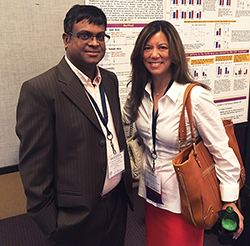 Global Down Syndrome Foundation is a founding member of the T21 Research Society. The Society is the first non-profit scientific organization of researchers studying Down syndrome, founded to promote basic and transnational research on Down syndrome and to apply new scientific knowledge to develop improved treatments and cures. After hosting a successful first conference in Paris, the society hosted a second conference in Chicago from June 7th to 11th. A number of Global affiliated scientists and scholars were invited to present their groundbreaking research:
Global Down Syndrome Foundation is a founding member of the T21 Research Society. The Society is the first non-profit scientific organization of researchers studying Down syndrome, founded to promote basic and transnational research on Down syndrome and to apply new scientific knowledge to develop improved treatments and cures. After hosting a successful first conference in Paris, the society hosted a second conference in Chicago from June 7th to 11th. A number of Global affiliated scientists and scholars were invited to present their groundbreaking research:
Joaquin Espinosa, PhD
Associate Director for Science at the Global affiliated Linda Crnic Institute for Down syndrome
Understanding Down syndrome as an Interferonpathy: Espinosa’s explains the implications for the understanding of leukemia and other co-morbidities driven by trisomy 21
Ann-Charlotte Granholm-Bently, PhD
Researcher for the Down Syndrome-Alzheimer’s Disease Investigator program powered by Global, Linda Crnic Institute and the National Alzheimer’s Association
Novel mechanisms in Down syndrome pathophysiology: Designer receptors reveal an important role for noradrenergic systems in Down syndrome pathology
Roger Reeves, PhD
T21 President and a member of the Scientific Advisory Board for the Linda Crnic Institute for Down Syndrome
Breakthrough and oral communication sessions: Reeves lecture focuses on a specialized pro-resolution mediator approach to chronic inflammation in the Ts654Dn mouse model of Down syndrome
Katherine Waugh, PhD
Postdoctoral Fellow for the Crnic Institute
Flash Poster Presentation: Waugh’s presentation includes extensive perturbations of the immune system among individuals with Trisomy 21
Michelle Sie Whitten
Global President and CEO
Medical Policies for people with Down syndrome: Whitten discusses medical care for adults with Down syndrome and lifting barriers
Donna Willcock, PhD
Researcher for the Down Syndrome-Alzheimer’s Disease Investigator program powered by Global, Linda Crnic Institute and the national Alzheimer’s Association
Biomarkers of Alzheimer’s disease in Down syndrome: Wilcock shares how individuals with Down syndrome who have Alzheimer’s disease have a distinct neuroinflammatory phenotype compared to sporadic Alzheimer’s disease
Because Down syndrome research has generated findings that affect thinking regarding research on Alzheimer’s disease and solid tumor cancers, T21RS creates another forum for drawing attention to the need for further funding for Down syndrome research, which could in turn benefit everyone’s lives. Global and the Crnic Institute are at the forefront of this research and look forward to helping place a greater emphasis on collaborations worldwide.
The conference that presents the latest scientific developments in the field of Down syndrome research is powered by a dynamic team of scientists, researchers, and scholars from across the world:
Conference Organizers:
Roger Reeves, PhD
Johns Hopkins University School of Medicine
Jean Delabar, PhD
CNRS-ICM
Mara Dierssen, MD, PhD
CRG-Center for Genomic Regulation
John O’Bryan, PhD
University of Illinois Chicago
Scientific Program Committee:
Mara Dierssen, MD, PhD- Chair
CRG-Center for Genomic Regulation
Anita Bhattacharyya, PhD
University of Wisconsin-Madison
Cynthia Lemere, PhD
Harvard Medical School
Jean Delabar, PhD
CNRS-ICM
Dean Nizetic, MD, PhD
Nanyang Technological University Singapore
Jorge Busciglio, PhD
University of California-Irvine
Nicole Schupf, PhD, DrPH
Columbia University Medical Center
Pablo Caviedes, MD, PhD
University of Chile
Deny Menghini, PhD
Bambino Gesu Children’s Hospital
For more info on T21RS, visit T21RS.org.
Your Blood Can Improve the Future
September 15th, 2016 by Global Down Syndrome Foundation
Global is taking the lead on supporting the Crnic Institute’s Down syndrome discovery-accelerator platform called The Human Trisome Project BiobankTM. By collecting just a single sample of blood from a thousand people with Down syndrome we believe scientists will discover treatments or even cures for diseases such as Alzheimer’s and leukemia that are more prevalent in people with Down syndrome.
The Salah Foundation Funds Global’s Research Program
January 19th, 2016 by Global Down Syndrome Foundation
The Salah Foundation has provided a generous matching grant of $187K to support the Global Down Syndrome Foundation’s Health & Wellness: Continuing Education for Adults with Down syndrome research program. Building on the program The Salah Foundation previously helped jumpstart, researchers at the University of Denver and Colorado State University are looking at measuring cognition in addition to garnering a better understanding of best practices in life skills and post-secondary education for people with Down syndrome.
The core of the program is a four-module education program carefully designed for adults with Down syndrome. Each module will be taught by respected experts in their fields and will provide participants with important life skills over a course of ten weeks. The entire four-module research program, including data collection, is designed to take place over an 18-month period. Participants will be evaluated before, during, and after each module to provide researchers with valuable empirical data about what works best to improve the life skills of adults with Down syndrome. Instructors work with the participants to develop individualized goals.
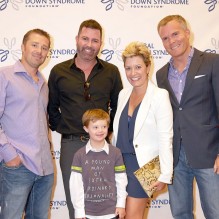
A preliminary research module ran from November to December 2015 with excellent results and concluding in various research adaptations.
The follow-on research module, Dance & Physical Fitness, is structured to help participants select enjoyable physical activities, plan weekly schedules that factor in recreational physical activities, and understand basic fitness and the impact on the body. These skills are especially important for the Down syndrome community due to a tendency towards obesity, and because exercise may also help increase cognitive functioning.
The other educational research modules in the program complement each other and provide a range of life-skills training. One module, Safety & Awareness, will focus on how to safely interact with others when socializing or in public. A third module, Communication Skills and Pragmatics, will focus on enhancing social interaction skills, especially peer socialization. The fourth module, Nutrition & Healthy Choices, will provide participants will knowledge about nutrition, meal planning, and how to cook and serve a meal in a social situation with friends or family.
Adults with Down syndrome ages 21 and up are being recruited to participate in the follow-on research program, which will begin on Monday, February 8, 2016 at the University of Denver. Dr. Karen Riley, Dean for the Morgridge College of Education at the University of Denver, is spearheading the research component of the program along with Dr. Deborah Fiddler, Professor of Human Development and Family Studies at Colorado State University.
 The Salah Foundation is a private foundation by invitation only, that supports non-profits organizations in the United States that strengthen families and communities and advances individuals to become productive and responsible citizens. There is special interest in education, medical research, community development and self-sufficiency programs. In addition to funding the new Continuing Education program. The Salah Foundation has helped fund Global’s Be Beautiful Be Yourself Hollywood Ball, as well as the I ♥ YOU Dance Parties, which provide members of the Down syndrome community with an avenue to socialize, get exercise, and become more comfortable with self-advocacy. For more information, go to http://www.globaldownsyndrome.org/programs-conferences-grants/programs/i-love-you-dance-parties-for-adults-with-down-syndrome/
The Salah Foundation is a private foundation by invitation only, that supports non-profits organizations in the United States that strengthen families and communities and advances individuals to become productive and responsible citizens. There is special interest in education, medical research, community development and self-sufficiency programs. In addition to funding the new Continuing Education program. The Salah Foundation has helped fund Global’s Be Beautiful Be Yourself Hollywood Ball, as well as the I ♥ YOU Dance Parties, which provide members of the Down syndrome community with an avenue to socialize, get exercise, and become more comfortable with self-advocacy. For more information, go to http://www.globaldownsyndrome.org/programs-conferences-grants/programs/i-love-you-dance-parties-for-adults-with-down-syndrome/
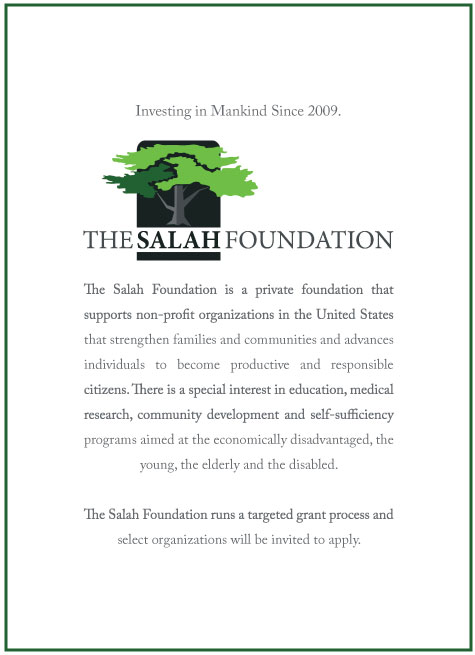
Prestigious Symposia Focuses on Down Syndrome Research
January 19th, 2016 by Global Down Syndrome Foundation
Researchers from the UK, China, and the US include Drs. Jeanne Lawrence, Tom Blumenthal, Huntington Potter, Angelika Amon, Michael Yeager and more.
“Biology of Down Syndrome: Impacts Across the Biomedical Spectrum,” the first national Keystone Symposia conference focused on Down syndrome research, will be held this January 24-27 in Santa Fe, New Mexico. The conference will examine every aspect of current Down syndrome research, as well as help promote the translation of research to therapeutic solutions. Over 130 scientists working on Down syndrome research from around the world will be presenting or attending the conference.
In a rare occurrence at a Keystone Symposia, a non-scientist will provide a keynote speech during the opening session. Down syndrome self-advocate, public speaker, and restaurateur Tim Harris will provide the conference’s opening remarks. Tim is the owner of Tim’s Place, one of the first restaurants owned by a person with Down syndrome. Tim’s Place is famous for serving hugs with their food, and Tim has given out more than 60,000 hugs to everyone from Stevie Wonder to the President of the United States.
Researchers associated with the Linda Crnic Institute for Down Syndrome have prominent leadership roles at the conference. Dr. Tom Blumenthal, Executive Director, Linda Crnic Institute for Down Syndrome and Professor, Molecular, Cellular and Developmental Biology, University of Colorado is co-organizing the conference along with Dr. Jeanne Lawrence, Professor and Interim Chair of the Department of Cell and Developmental Biology at the University of Massachusetts Medical School and a Crnic Scientific Advisory Board member. Drs. Victor Tybulewicz of the Francis Crick Institute and Elizabeth Fisher of the University College London Institute of Neurology are also co-organizing the event.
Dr. Blumenthal will be presenting his research Protein Level Changes in the Blood Reveal Altered Cell Signaling Pathways in Down Syndrome. Dr. Lawrence will Chair the Dysregulation of Cellular Pathways in Down Syndrome session.
Dr. Huntington Potter, Professor of Neurology and Director of Alzheimer’s Disease Research in the Department of Neurology and the Linda Crnic Center for Down Syndrome at the University of Colorado, Denver will be presenting his research Trisomy 21 and Other Aneuploidy in Multiple Neurodegenerative Diseases. Dr. Angelika Amon, another Crnic Scientific Advisory Board member, will be presenting her research Effects of Aneuploidy on Hematopoiesis and Blood Malignancies. Dr. Michael Yeager, Assistant Professor, Pediatric Critical Care, University of Colorado School of Medicine and Crnic Grand Challenge Grant recipient in 2015 and 2013, will be presenting his research Phenotypic and Functional Disturbances in White Blood Cell Subsets in Down Syndrome.
The Global Down Syndrome Foundation raises funds for the Linda Crnic Institute for Down Syndrome to underwrite critical research benefiting people with Down syndrome. $5.7 million in research grants have been awarded to 33 investigators to date, with $3.5 million going to Crnic Grand Challenge Grant recipients. Dr. Tom Blumenthal established the Crnic Grand Challenge Grants program in 2013; the grants are available to scientists from the University of Colorado system. This support is critical to advance Down syndrome research, since Down syndrome is the least funded genetic condition by the National Institutes of Health (NIH). The research sponsored by the Crnic Institute also has the potential to not only benefit people with Down syndrome, but also the millions of typical people who suffer from a wide variety of ailments like cancer, Alzheimer’s disease, and autoimmune disorders.
For nearly 44 years, the Keystone Symposia has helped advance biomedical and life sciences by creating interdisciplinary connections between scientists at conferences that facilitate the generation and exchange of ideas.
Global Hires Specialist Focused on Adults with Down Syndrome
December 3rd, 2015 by Global Down Syndrome Foundation
In 2015 Global allocated considerable human and financial resources towards creating a multi-year plan to specifically improve the lives of adults with Down syndrome. One important step was hiring Bryn Gelaro, LSW, a social worker who was mentored by leading experts at The Adult Down Syndrome Center at Lutheran General Hospital just outside of Chicago.
“I am so pleased to be able to continue to mentor Gelaro here at Global. She is a rare find and truly gifted when it comes to working with our adults,” said Dr. Dennis McGuire, the co-founder of the adult center in Chicago and the co-author of “Mental Wellness of Adults with Down Syndrome” and “The Guide to Good Health for Teens and Adults with Down Syndrome.”
In Chicago Gelaro organized and managed a life-skills class for adults with Down syndrome. “There are a lot of great life-skills classes out there but there is a lack of evidence-based curriculum and tested improvement,” said Gelaro. “That’s what is exciting about working with Global – we can really address important gaps and move quickly towards improving lives.”
Gelaro will assist with the Global Down Syndrome Foundation Educational Grant Program that currently funds nine post-secondary life-skills programs in eight states. She will also assist Global with the following projects in 2016:
- Helping to oversee a groundbreaking post-secondary research study
- Assisting with the Global Adult Down Syndrome Task Force
- Helping Dr. McGuire to organize behavioral health goals for Global’s future world-class medical center for adults with Down syndrome
“Adults with Down syndrome face so many barriers to services that could improve their happiness and well-being,” Gelaro said. “Often, our adults are not given voice. But being person-centered in our approach and in developing these programs gives them opportunities and empowers them to live full, meaningful lives.”
Gelaro received her master’s degree in social work from the University of Chicago. Prior to joining Global, Gelaro worked at the Adult Down Syndrome Center at Advocate Lutheran General Hospital in Chicago and at The Arc of Centre County in Pennsylvania. At Global, Gelaro acts as primary recruiter for the educational program in Denver.
Your year-end donation funds important Global Down Syndrome Foundation programs that support and empower adults with Down syndrome to live fulfilling lives. Click here to donate today.
First National Keystone Symposia Conference on Down Syndrome Research to be held January 24-27 in Santa Fe, New Mexico
December 1st, 2015 by Global Down Syndrome Foundation
For the first time in its 44-year history the Keystone Symposia is holding a national conference on Down syndrome, “Biology of Down Syndrome: Impacts Across the Biomedical Spectrum.”
KEYSTONE SYMPOSIA CONFERENCE
The conference is co-organized by Drs. Victor Tybulewicz of the Francis Crick Institute, Elizabeth Fisher of University College London Institute of Neurology, Jeanne Lawrence of the University of Massachusetts, and Tom Blumenthal of the Linda Crnic Institute for Down Syndrome at the University of Colorado. The conference will cover all aspects of Down syndrome research from genetics and cell biology as well as provide a forum to promote translation of research toward therapy. Session topics include: DS at the Cellular Level, Gene Regulation in DS, Genetics and Epidemiology of DS, Dysregulation of Cellular Pathways in DS, Cognition and Alzheimer’s Disease in DS, and Therapy – Present and Future.
“Biology of Down Syndrome: Impacts Across the Biomedical Spectrum.”
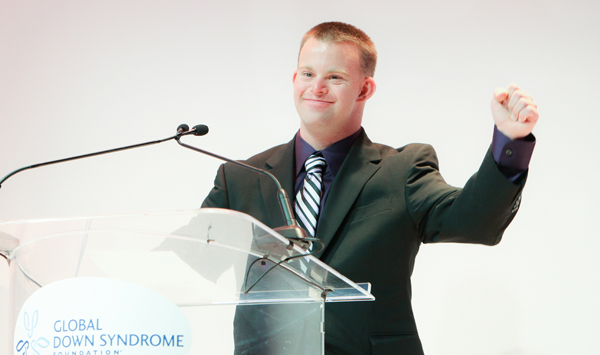
Extraordinary restaurateur, motivational speaker and Quincy Jones Exceptional Advocacy Award recipient Tim Harris is slated to provide the opening address. Harris has garnered much attention from his successes and has appeared on CNN, Oprah, Ellen and The View.
Supporting science is one of Global’s key missions. Global and the Crnic Institute have raised $2.5 million Alzheimer’s disease-Down syndrome research and Crnic Institute grants resulting in 28 labs & 100 scientists working on Down syndrome research.




 Experience our inspirational and groundbreaking videos and photos. Our children and self-advocates are beautiful AND brilliant!
Experience our inspirational and groundbreaking videos and photos. Our children and self-advocates are beautiful AND brilliant! Make sure your local Representatives are on the Congressional Down Syndrome Task Force.
Make sure your local Representatives are on the Congressional Down Syndrome Task Force.